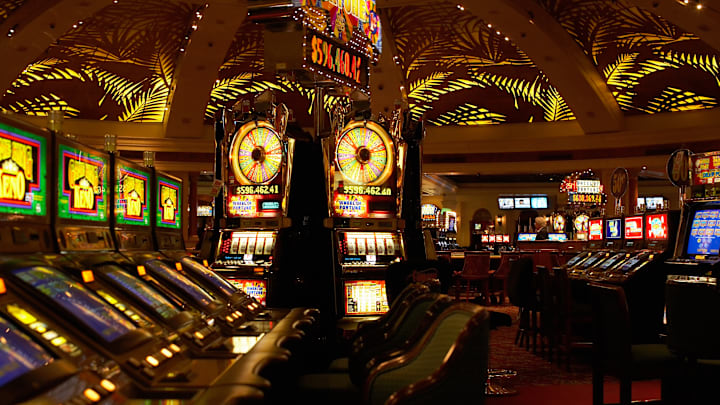It is rare to see a ray of sunlight in a modern-day casino. The vast caverns full of blinking lights and second-hand smoke infamously lack windows to the outside world. Many think this is intentional, a psychological trick played by the house, which, as the saying goes, always wins.
“You should forget when you entered the casino and how long you have been playing there,” one of the self-appointed experts on Quora explains. “For this reason, casino designers removed windows from the building structure to prevent players from seeing outside. Because the light would be an alarm for you spending the whole night at the casino!”
This theory has been repeated on Medium, YouTube, and other forums where citations are optional.
The truth is more complicated. Casino operators dismiss the idea that they conspire to disrupt their patrons’ sense of time. (In an article for Time Out Chicago, the manager of the Horseshoe Casino in Hammond, Indiana, pointed out that nearly everyone carries around a phone that doubles as a clock.) But thought leaders in casino design have been open about how they keep gamblers engaged, and some of their approaches avoid the use of natural lighting.
Bill Friedman, former manager of Castaways and the Silver Slipper in Las Vegas, wrote what might be the definitive book on the subject, Designing Casinos to Dominate the Competition. Released in 2000, the book is organized into 13 principles (like “Gambling Equipment Immediately Inside Casino Entrances Beats Vacant Raised Entrance Landings and Empty Lobbies” and “Short Lines of Sight Beat Extensive Visible Depth”). He exhaustively covers every aspect of casino interior design in over 600 pages.
Friedman promotes a maze-like layout that keeps visitors curious about what’s beyond the next corner while also giving them small cubbies in which to be entranced by specific games. The overall intent is to keep the gambler focused on the machines rather than the larger environment. As neuroscientist Colin Ellard put it, “In [Friedman’s] view, attention paid to the walls, floors, or ceilings of a casino represents wasted potential profit.”
So bright open windows would conflict with Friedman’s general method, but the book doesn’t explicitly endorse blocking them to tamper with the gamblers’ internal clock. Friedman himself has said it’s a “myth” that “Nevada’s casino operators removed clocks and sunlight [through] glass doors and windows, to manipulate players to gamble longer.” Instead, he said, “it was the serious players who demanded they remove them” because they willfully “use a fantasy to escape reality while they gamble.” In addition to distracting gamblers from what’s happening inside the casino, natural light can create an unpleasant glare on playing cards and slot machine screens.
Not every casino employs Freidman’s maze concept though. The competing idea is the “playground” layout pioneered by Roger Thomas, who designed Wynn Resorts. Starting in the late ’90s, Thomas designed casino floors as open spaces with comfortable furniture, artwork on the walls, and orchids in vases on tables. Many were flooded with natural light. This design is also not without an element of manipulation. “They make you feel comfortable, of course, but they also constantly remind you to have fun,” Thomas told the New Yorker. When people feel relaxed, they gamble more. So the cave atmosphere is not even a prerequisite in Vegas.
Even harsh critics of casinos don’t cite the sunlight manipulation theory much. In her book Addiction by Design: Machine Gambling in Las Vegas, Natasha Dow Schüll, a cultural anthropologist at New York University, does not mention it. Instead, Schüll criticized the gambling industry’s deemphasis of craps, roulette, and other games that involve socialization and the elevation of video-screen slot machines, a “solitary, absorptive activity [that] can suspend time, space, monetary value, social roles and sometimes one’s very sense of existence.”
In other words, casinos have better ways of disrupting the senses of their patrons than lying to them about the time.
Read More About Gambling:
